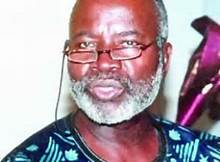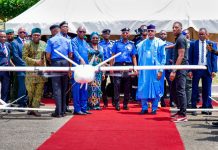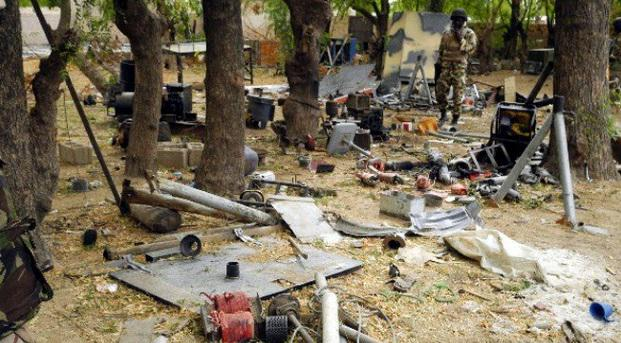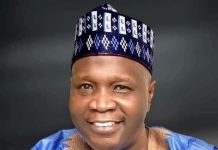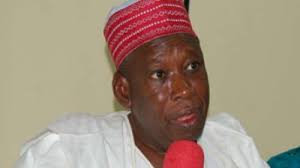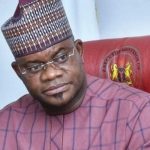By Nuel Suji – A former Vice Chancellor of Adekunle Ajasin University, Akungba Akoko (AAUA), Prof. Olufemi Mimiko has said that he bears no grudge against the governing board of the institution for denying him of the Vice Chancellor seat despite the fact that he came top in the selection process in 2006.
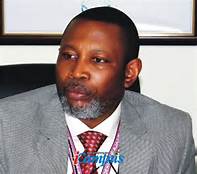

Prof. Mimiko who later served a six-year term as VC of the institution had alleged in his latest book titled, “Getting Our Universities Back On Track: Reflections and Governance Paradigms From My Vice-Chancellorship, the the Governing Council under the chairmanship Dr. Olajumoke denied of the seat by introducing a rule to edge him out.
“The former Pro-Chancellor confirmed that indeed, Professor Femi Mimiko came first in the two VC selection interviews held in April 2006, out of the 13 candidates that were shortlisted by the Governing Council for the job. That, to me, is the crux of the matter.
“What points the former Pro-Chancellor did not make, however, are first, that the 70% pass mark brandished in his Statement was fixed only after the interviews had been concluded; and there is evidence to support this claim. The second is that the Law of the university is clear, to the effect that the best three candidates in an interview for the position of VC ‘shall be recommended to the Visitor,’ who is at liberty to pick any of the three, and appoint him/her as VC. Now, the questions are: is it fair to fix the rules of engagement after a contest had been concluded, as Dr. Olajumoke’s Council did in this instance? Did the Council comply with the rule that the best three candidates be recommended to the Visitor? The answer to both questions is unquestionably in the negative.
“I do not seem to understand the point Dr. Olajumoke wanted to make, after acknowledging the fact that I led the two interviews, by the phrase, ‘this to me and other members of the Committee was clearly understandable, (Professor Mimiko) being a member of the University.’ It bears repetition here that I was not the only internal candidate that participated in that exercise. At least three others did, and I thought this fact should have impacted on the former Pro-Chancellor’s insinuation here, whatever message it was meant to convey. In the same vein, the issues raised by Dr. Olajumoke on, number of years of professorship, doctoral thesis supervision, and attraction of grants, are strictly beside the point. If anything, they go in the direction of the point I made in my book that it was only after Professor Mimiko had emerged as the best candidate out of 13, that excuses had to be drummed up to scuttle the exercise.
“Otherwise, how come these issues the former Pro-Chancellor would have no hesitation raising in his Press Statement, assuming they are correct, only became important for a candidate that had already been shortlisted on the same rule used to shortlist 12 others? Isn’t the fact of shortlisting a candidate an admission that he prima facie qualifies for consideration and possible appointment in the first instance? Why did all of those issues become important only at the point of making a recommendation to the Visitor as prescribed by the enabling law? By the way, AAUA was barely seven years old in 2006 when I first sought to be appointed its VC.
“Senator Olajumoke also hinted in his Statement that the Council was kind to me in appointing me Acting VC effective May 2006, and wondered why I did not complain about such a favour. To be sure, the Council did not do me a favour by appointing me as Acting VC after it had scuttled the exercise for the appointment of a substantive VC, as I was at the time, the sitting Deputy Vice-Chancellor (DVC). By law, the DVC steps in upon the completion of the tenure of office of an outgoing VC, and in the absence of a new one. In the light of this, Council couldn’t have bypassed me for someone else. More importantly, I wish Dr. Olajumoke knew how much I detested the idea of being Acting VC at the time. I agreed to take up the offer only because it was consequent upon my being the incumbent DVC.
“I chose not to participate in the fresh exercise set up by the same Council for the appointment of VC after I had administered the University for some six months as Acting VC. I did not, because I had my doubts about the body’s capacity for fairness. I also did not feel I had to be VC under such circumstances. Thus, I chose not to apply in spite of entreaties from some very prominent members of that Council, who probably now may have forgotten some of their discussions with me in this regard.
“Finally, it is evident from my own account of the entire saga as contained in Getting Our Universities Back On Track, that I did not, and still do not hold any grudge on the way Dr. Olajumoke’s Council chose to interpret its mandate, and handle the instruction it received, in 2006,” Prof. Mimiko said.
Adding: “I have simply given vent to my own reading of the events, and on the basis of the additional facts in my possession, which I am not inclined to mention, not in my book, not in this piece. I assure Dr. Olajumoke, an elder statesman by every measure, of my profound respect for his status. This, I have shown variously, first, by acknowledging in my book, his contributions to AAUA as Pro-Chancellor. I also did, when I had the privilege to host him in my office when eventually I became the VC of the University, years after the 2006 exercise.
“In all modesty, my book is simply a realist’s prescription of what needs to be done to get Nigeria’s universities back on track. I would rather the policy prescriptions therein attract the attention and informed comments of critical stakeholders in the higher educational sector, much more than the softer issues of ‘who (did) what, when and how’ as we trudge on, on the very tortuous path to national rediscovery.
“Gladly, this much was done a few weeks ago when the Ibadan School of Government and Public Policy (ISGPP) made the book the basis of a well-attended colloquium at which many eminent education leaders participated,” he added.

